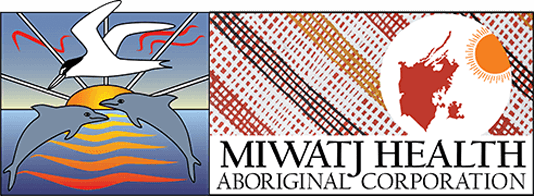Record Immunisations at Children’s Health Blitz
The month of May was a time of innovation and results at Miwatj Health, with our Remote Area Nurses driving an incredible campaign aimed at raising youth vaccination rates and ensuring health checks were up to date in the community of Galiwin’ku and surrounding areas.
The 2023 Djamarrkuli Health Month (Children’s Health Month) was a pilot initiative. It was conducted in multiple locations around the Elcho Island community, including:
- The Galiwin’ku Sports & Recreation Centre
- Shepherdson College (the local school)
- A mobile vaccination van
The van was incorporated after the first week of operations in an attempt to meet clients where they were. Nursing staff travelled from Galiwin’ku to neighbouring communities, like Buthan, together with Public Health staff and Aboriginal Health Practitioners (AHPs). With consent, health checks and immunisations were completed on doorsteps and in homes – for many children, far less daunting than a clinical setting.
Barriers to Immunisations | Why Was Djamarrkuli Health Month Needed?
There are a range of reasons why vaccination rates fluctuate in remote communities. In the lead up to Djamarrkuli Health Month, Miwatj Health nurses worked together with the Public Health team to identify the barriers to immunisations, and planned a way to overcome them.
Remote communities sprawl. Unlike built-up areas, there is no public transport, and no taxis or Uber. Getting to a health clinic requires a lengthy walk, or a lift (which can be hard to come by). Communications coverage is also patchy. Where clients in cities and towns can rely on electronic reminders about upcoming vaccinations and health checks, those in remote communities may miss the memo due to a phone or internet outage.
Finally, language. Traditionally, health education has been provided in English. In Yolŋu communities, English is often a fourth or fifth language. While most clients understand the need for health checks and immunisations, the importance of meeting the strict childhood vaccination schedule can be lost in translation. Truthfully, this is the case for many parents, regardless of language barriers, however when combined with the other barriers to immunisation, can lead to a higher number of children unvaccinated.
Who Was Involved
Djamarrkuli Health Month was a huge operation that would not have been possible without the help of a range of key stakeholders. The following groups were instrumental in setting up, supplying, and running health check stations in all blitz locations:
- East Arnhem Regional Council
- Northern Territory Government
- Aspen Medical
- Shepherdson College
- Remote Area Health Corps (RAHC)
The RAHC Team worked closely with Miwatj nursing, AHP and Public Health staff so that Djamarrkuli Health Month could be adequately staffed without affecting the function of the Miwatj Health Clinic.
Djamarrkuli Health Month Results
Djamarrkuli Health Month was a multidisciplinary health outreach effort. Over the month, thousands of vaccines and health checks were completed, making the blitz a raging success.
The addition of the mobile vaccination van produced an unexpected bonus. With the help of Miwatj AHPs, staff and clients could communicate successfully about the importance of the flu shot, leading into the cooler months. Adults who hadn’t yet been able to make it to Clinic were able to opt in for the flu shot while staff completed child health checks. Ultimately, this means more protection for the whole community.
Staff Thankyous
Thank you to all the Miwatj staff who contributed to Djamarrkuli Health Month. Chloe, Demi, Leandra, Zoe, Joy, Jodie, James, Bethanie, and the Public Health Team – your efforts supporting this djäma (work) were incredible.
A very special thank you also, to Emer O’Connor, Miwatj Child Health Program Lead. Emer working tirelessly behind the scenes and on the ground throughout Djamarrjuli Health Month. Without her, this initiative would not have gone ahead, nor been such a success.
Manymak djäma bukmak!
(Good work, everyone)


